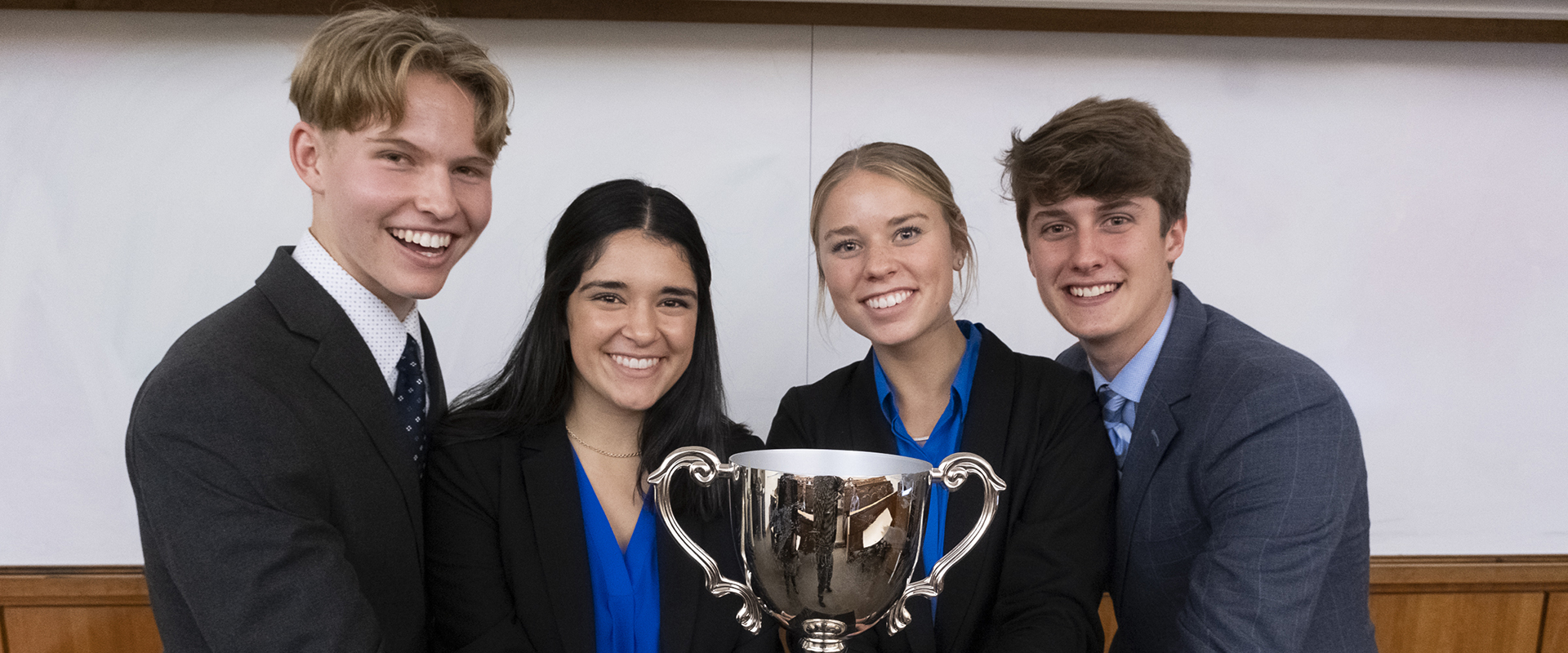
11-08-2022
A team of four undergraduates took home the top prize of $1,200 in an annual case competition between Purdue’s School of Management and Indiana University’s Kelley School of Business.
The winning team was led by Katarina Nikolovski and included Jonathan Putman, Jillian Brumm, and Sam Wadlington. Nikolovski, Putman, and Wadlington are also members of the Larsen Leaders Academy. They bested seven other teams to secure the traveling trophy, including three teams from Kelley, three teams from Purdue, and a team from Indiana University-Purdue University Indianapolis.
Titled “Cashless Economies: Costs and Benefits,” the case examined countries that are moving in the direction of cashless transactions. The advantages include reduced risk of robbery, quicker processing of transactions, enhanced transparency, and reduced threat of corruption. In addition, the government saves the substantial cost of minting currency. Two concerns remain unresolved, however. First, many people still need cash because they have not adapted to the digital age, and second, the threat of identity theft and fraud continues.
By the end of the case, students were expected to prioritize the most important issues. For example, assisting the socially marginalized to become part of the cashless economy may be less important than helping hundreds of millions of consumers adapt by protecting themselves from identity theft. Teams also considered how to bridge the social divide for marginalized consumers who are limited to cash transactions, as well as how to raise awareness about privacy concerns related to the Internet and cashless economies.
“Experiential learning opportunities like case competitions allow students to diversify their knowledge by finding solutions to challenging, complex problems,” says Nikolovski. “Participating in the Purdue-Kelley case competition allowed me to learn extensively about a worldwide economic phenomenon that I did not have exposure to before.”
“Our team’s biggest challenge was developing an understanding of each other’s individual strengths and then creating a team culture that allowed everyone to thrive within their dedicated niche,” adds Putman. “This was of the utmost importance because we understood that when attacking complex issues, having a team that encompasses diversity of thought is critical to creating a plan that can be defended.”
Aryca Woodson, a lecturer at the School of Management and a coach at the school’s communication center, says the six judges were impressed by all of the solutions delivered by the teams and expressed a desire to judge future competitions. She also credits student consultants Lily Pavicich, Will Tian and Donnie Smith. “They did a phenomenal job hosting our guests from Indianapolis and Bloomington,” she says.